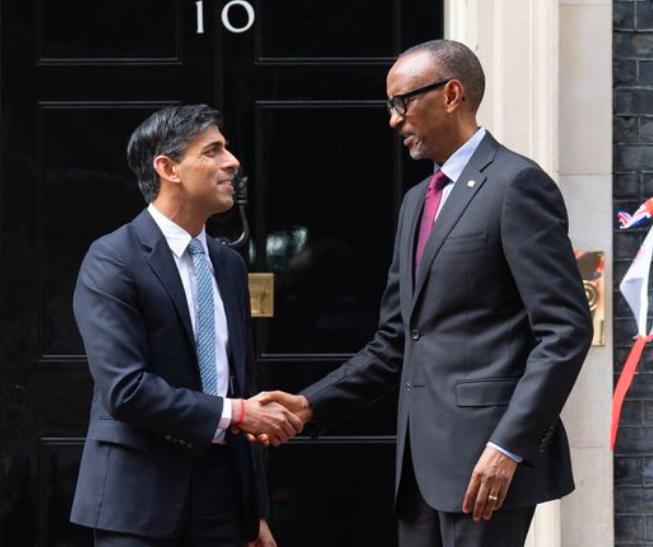On Thursday, 5th May 2023, Rwanda’s President Paul Kagame met UK Prime Minister Rishi Sunak in London ahead of King Charles III’s coronation ceremony. The meeting was part of one-to-one discussions held by the British Prime Minister with world leaders as they arrived in London for the royal event. During their talks, the UK and Rwanda agreed to a multimillion-pound partnership worth £140 million to tackle the issue of small boats carrying migrants entering the UK through unauthorised routes. Under the deal, the UK will send anyone who enters the country unlawfully to Rwanda, where they will be received and processed by the Rwandan authorities.
The plan to send migrants to Rwanda was ruled lawful by the High Court judges, although it has so far been stalled by legal action, and no flights have taken off. However, the UK government remains committed to operationalising the policy and beginning flights to Rwanda at the earliest opportunity. Sunak praised the UK and Rwanda’s partnership, stating that it demonstrated the countries’ leadership in finding global solutions for shared international challenges.
The UK Prime Minister also commended Kagame’s leadership of the Commonwealth over the past year, saying he had “led the way” on issues such as trade and sustainability. Sunak expressed his sympathies for the devastating floods in Rwanda, which have left at least 129 people dead, and discussed international security challenges with Kagame, including those in Sudan, the Democratic Republic of Congo, and Ukraine.
However, the deal has raised human rights concerns, with Amnesty International urging Sunak to formally cancel it. The human rights charity claims that the deal provides political cover for Kagame’s authoritarian government and could lead to the violation of migrants’ rights. The Rwandan authorities have been accused of human rights abuses, including the persecution of political opponents and journalists, as well as extrajudicial killings.
Critics argue that the deal is unethical and could have disastrous consequences for migrants, given the human rights situation in Rwanda. They argue that instead of working to push for human rights reforms in Rwanda, UK politicians are praising the Rwandan authorities and minimising the severity of the country’s human rights situation. They also argue that the plan to house refugees in barges off the English coast while their asylum claims are processed is cruel and inhumane.
The UK’s approach to migration has faced criticism in recent years, with many accusing the government of adopting an increasingly hostile stance towards migrants. The UK’s decision to leave the EU has also had significant implications for migrants, as the country’s withdrawal from the bloc has meant that it is no longer bound by EU laws and regulations on migration.
The UK’s approach to migration has also been criticised for failing to address the root causes of migration, such as poverty, conflict, and political instability. Critics argue that by focusing solely on deterrence, the UK is neglecting its responsibility to address the underlying issues that drive migration. They argue that the UK should be working with countries like Rwanda to tackle poverty, conflict, and political instability and to promote human rights and democracy.
































































